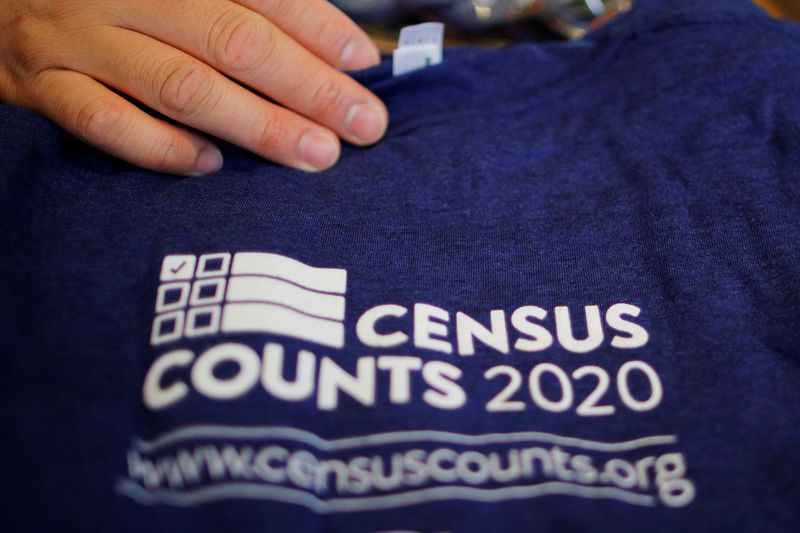By Brendan Pierson
NEW YORK (Reuters) - The Trump administration is expected to appear in court on Wednesday to defend itself against claims that its proposed addition of a citizenship question to the 2020 U.S. Census was secretly orchestrated by a political operative seeking to boost Republicans' voting power.
The hearing in Manhattan federal court is the latest development over the contentious plan to add a citizenship question to the census.
U.S. District Judge Jesse Furman in January said the government could not add the question after immigration groups, including the Arab-American Anti-Discrimination Committee and Make The Road New York, sued to block it. Two other judges have ruled against the government in similar cases, and the Supreme Court is set to issue a decision by the end of this month on whether the question can be added in time for next year's census.
Last week, Furman ordered a hearing after plaintiffs in the Manhattan case claimed in a court filing that Thomas Hofeller, a Republican who specialized in drawing electoral districts, played a "significant role" in planning the citizenship question. They said the administration hid this fact during the course of their lawsuit and asked Furman to sanction the government.
In a court filing on Monday, the administration denied that Hofeller, who died last August, was behind the question, calling the plaintiffs' claim a "conspiracy theory" and an "eleventh-hour campaign to improperly derail the Supreme Court's resolution of the government's appeal."
According to the plaintiffs, Hofeller concluded in a 2015 study that asking census respondents whether they were U.S. citizens "would clearly be a disadvantage to the Democrats" and "advantageous to Republicans and Non-Hispanic Whites" in redistricting.
They said that Hofeller went on to ghostwrite a draft letter from the Department of Justice to the Department of Commerce, asking for the addition of a citizenship question.
Opponents have said such a question would cause a sizeable undercount by deterring immigrant households and Latinos from filling out the forms, out of fear the information would be shared with law enforcement.
Democrats, immigrant advocates and demographers say such an undercount could deprive some communities of funds and political representation because the Census determines how the federal government distributes aid, as well as seats in Congress.

If Furman rules that the government concealed evidence, it is unclear what sanctions he would impose.